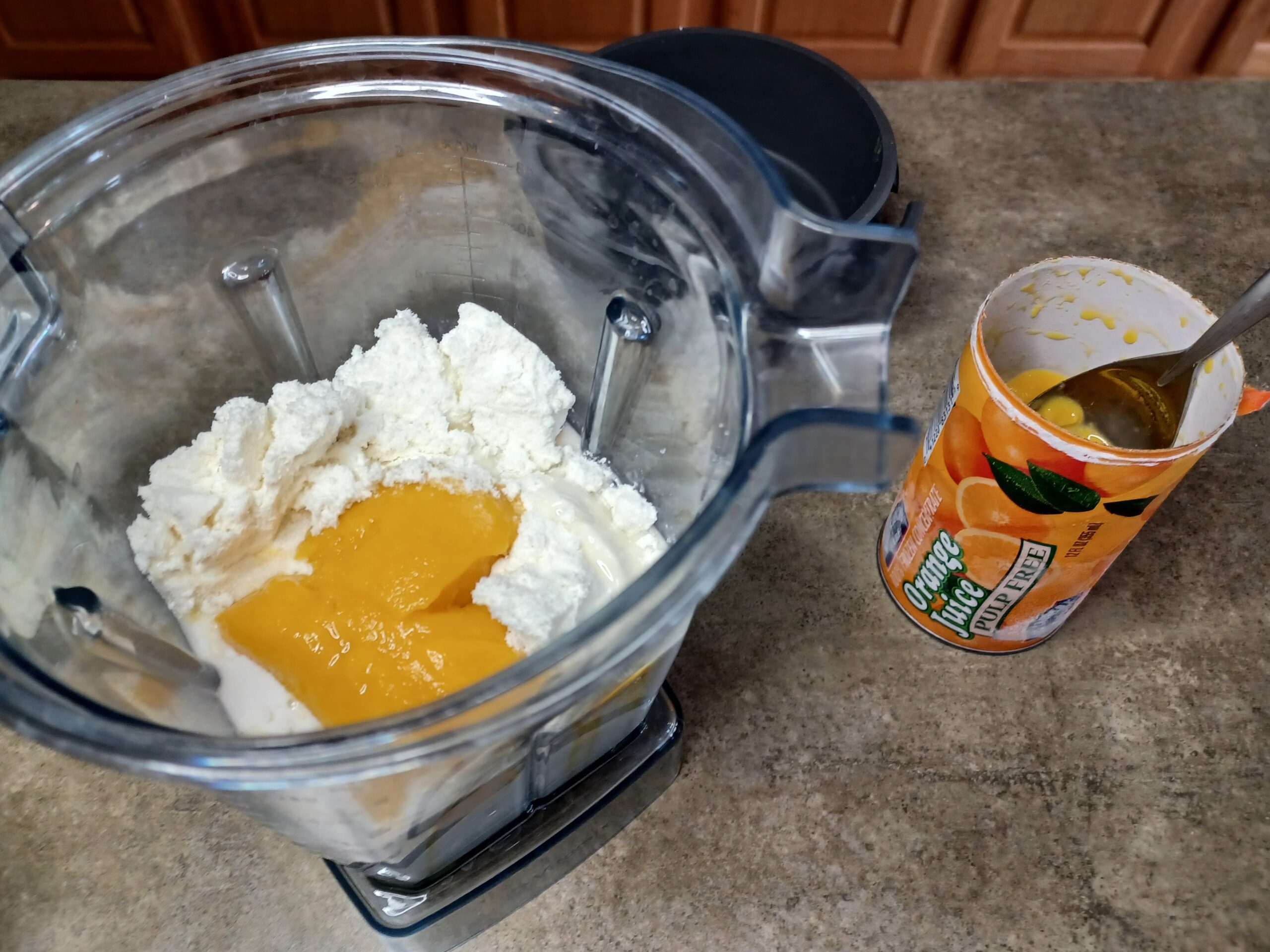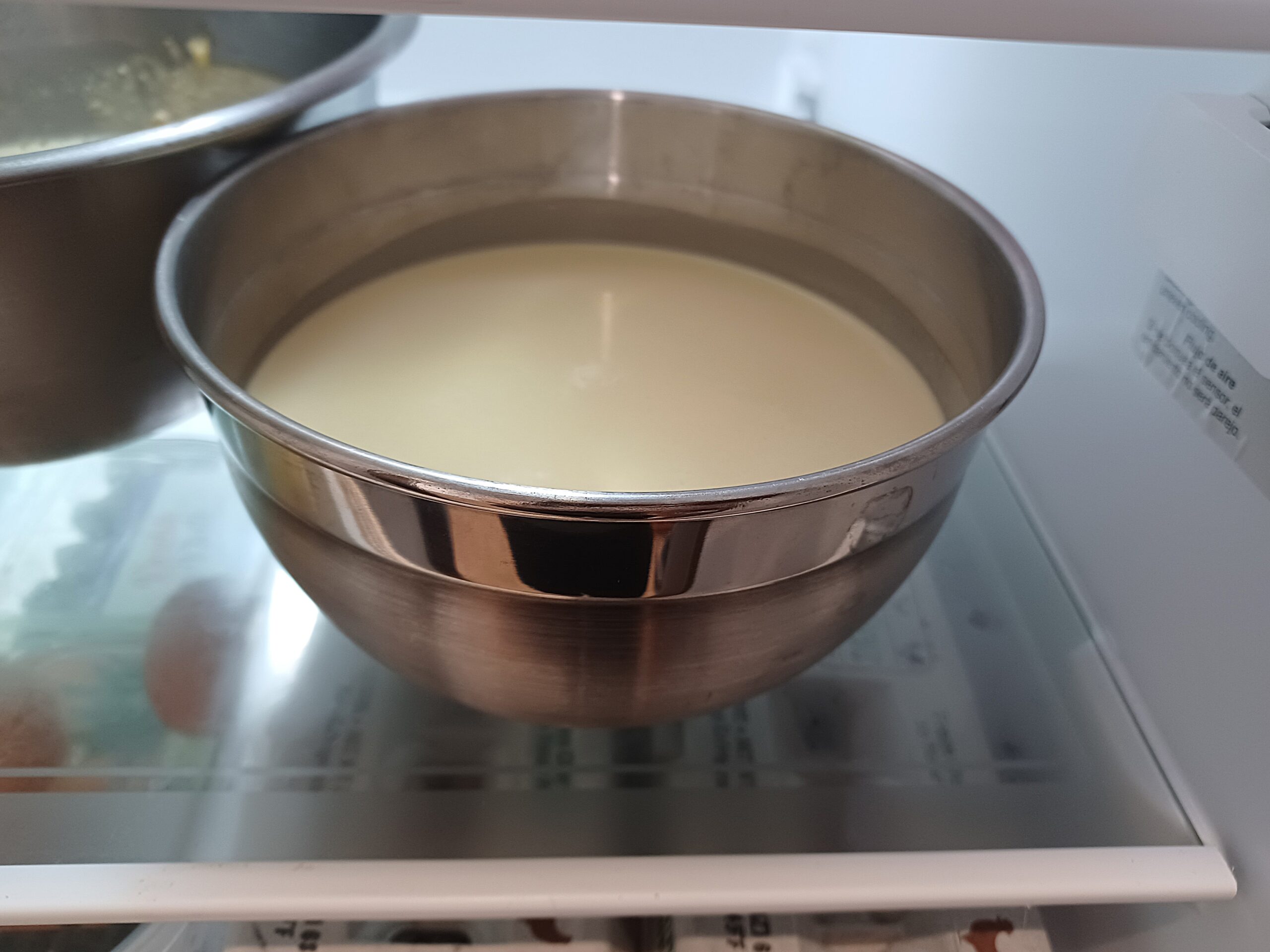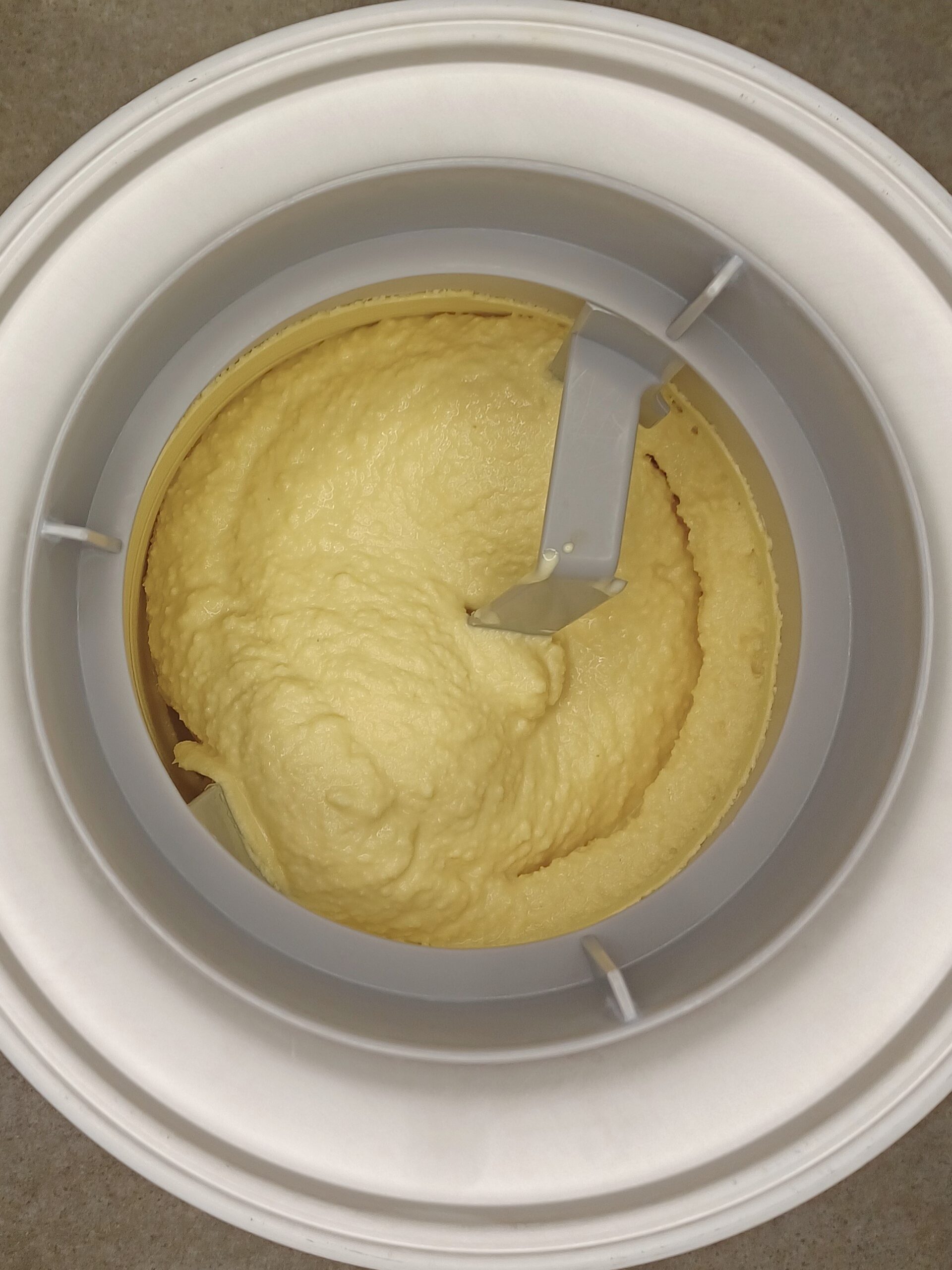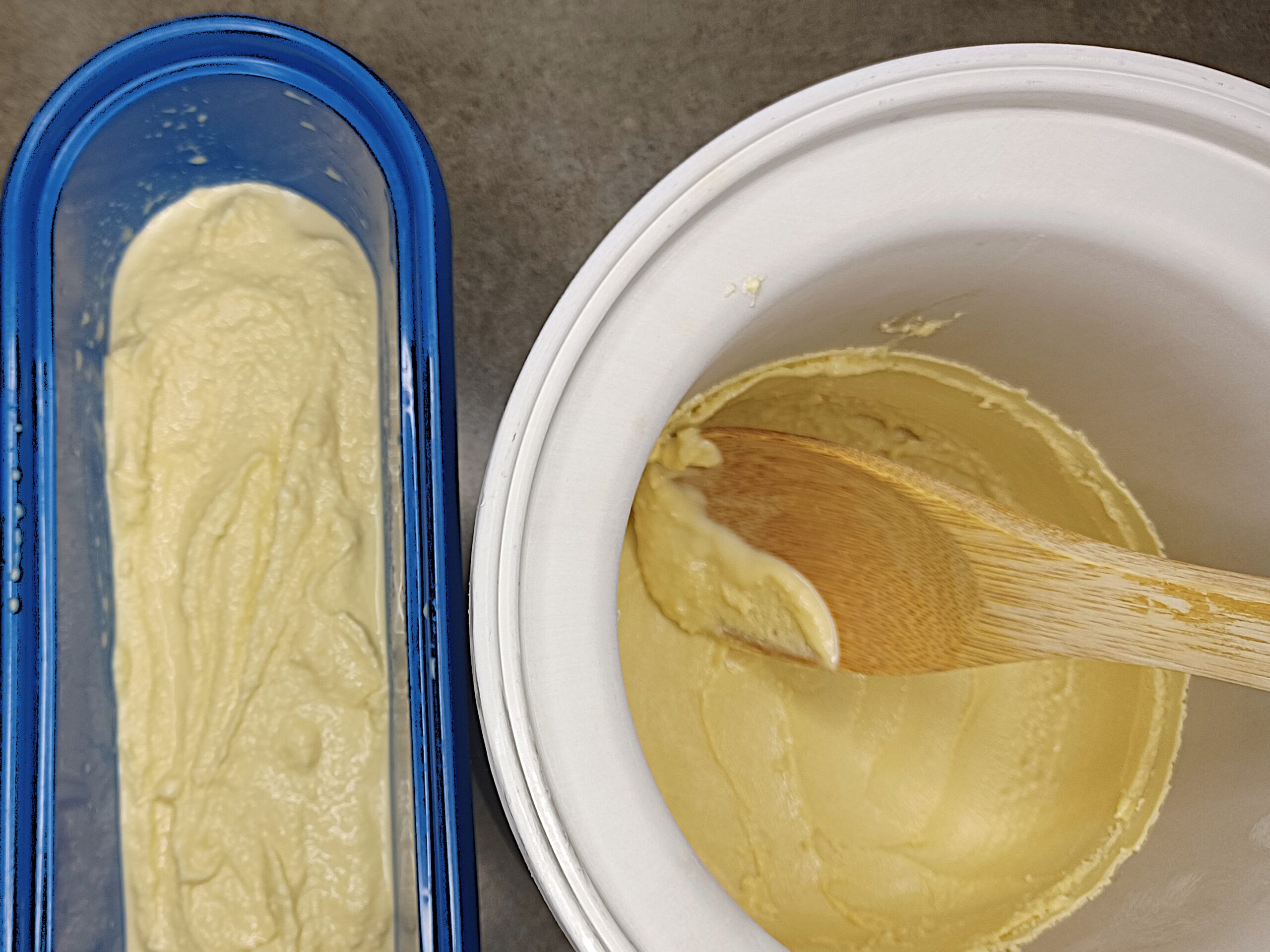I grew up loving Orange Julius. Not the drink from the beverage chain (which I’ve actually never tasted), but the one my mom made in the blender. Something like this recipe, with milk, frozen orange juice concentrate, ice, and vanilla coming together into sweet, creamy, tart, slushy goodness. Orange Julius Sherbet tastes just like I remember the drink, but even better, because scoops of frozen dessert always win!
We have to talk about ice cream vs. sorbet vs. sherbet for a minute. Ice cream contains fat, while sorbet does not. Sherbet falls somewhere in between with a little fat, but less than ice cream. Orange sherbet is typically made with fresh orange juice. This Orange Julius Sherbet tastes different from orange sherbet, because it’s made with frozen orange juice concentrate and is extra creamy.
My Orange Julius Sherbet gets creaminess from a combination of coconut milk and whey protein. It’s lactose free, because whey protein has had all the lactose removed. I love adding protein powder to ice cream, because it creates a wonderful texture while using less sugar than typical ice cream recipes. (More on how that works here.)
If you want to go completely dairy free, you have some options. You can swap out the whey for another type of protein powder, such as collagen or a plant-based protein. See the recipe notes below for specific recommendations. You could also leave out the protein powder. The sherbet will be lighter and icier, but still very good.
Orange Julius Sherbet (lactose free)
Makes ~1 quart.
Ingredients
Instructions
-
BLEND
Add all ingredients to a blender and blend thoroughly, scraping down the sides with a spatula, until fully combined and smooth.
-
CHILL
Transfer to a container and chill in the refrigerator for 8 hours or overnight.
For a quicker chilling time, place the bowl containing your mixture in an ice bath (a larger bowl containing ice water) for a few hours. Stir the mixture occasionally. As the water in the ice bath warms up, pour off some water and add ice to keep the mixture chilling as quickly as possible.
Ideally, the mixture will be about 40 degrees when you churn it.
-
CHURN
Before you start churning, set up everything you'll need to quickly transfer the sherbet from the machine into a container for freezing. I use a knife to scrape down the dasher (or paddle) and a wooden spoon to scoop out the sherbet.
Set up your ice cream maker according to the manufacturer's directions. Pour your mixture into the ice cream maker and churn. In my machine the perfect churning time is 24 minutes, but your experience may vary.
The sherbet is finished churning when it looks like soft-serve and is pulling away from the sides of the canister.
-
STORE
When the sherbet has finished churning, scoop it as quickly as possible into your storage container. Cover it with plastic wrap or parchment paper, if using. (Placing a sheet of parchment paper between the container and lid will help prevent frost, or you can press plastic wrap directly onto the surface of the sherbet.) Put the container in the freezer. The sherbet will be fully firm in a few hours.
Note
You can use any unflavored, unsweetened protein powder you want. Whey, collagen, and egg white work the best. Vegan protein powders can work too, but sometimes create a chalky texture. Because different protein powders have different textures, the same volume of different powders may weigh different amounts. Weighing is the best method for ensuring you get the 65 grams the recipe calls for, but here are some estimates for using a cup measurement:
- 65 g collagen powder = 1/2 cup + 2 tablespoons
- 65 g whey protein = 1 scant cup
- 65 g egg white protein = 3/4 cup
- 65 g soy protein = 1 cup
- 65 g pea protein = 3/4 cup
Recommended equipment: (may include affiliate links)
- My ice cream maker (2 qt)
- Newer version of my ice cream maker (2 qt)
- Well-reviewed less expensive ice cream maker (1.5 qt)
- Insulated ice cream container
- Heat-proof spatula
- Immersion/hand blender
- Standard blender
- Ice cream scoop
- Measuring cups
Recommended ingredients: (may include affiliate links)




